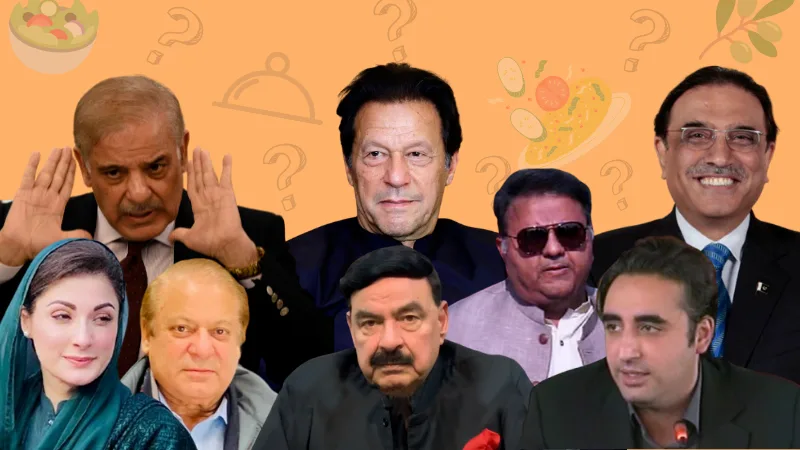Pakistan, a nation brimming with history, diversity, and vibrant culture, also boasts a complex and dynamic political landscape. From the founding fathers to contemporary figures, Pakistani politicians have shaped the nation’s trajectory, leaving an indelible mark on its social, economic, and foreign policy. Delving into this intricate world requires navigating numerous avenues, understanding varied perspectives, and acknowledging the multifaceted narratives that define Pakistani politics.
Founding Figures and Early Years (1947-1977):
- Muhammad Ali Jinnah: The revered Quaid-e-Azam, Jinnah led the struggle for independence and laid the foundation for Pakistan’s political system. His legacy remains contested, with interpretations highlighting his unifying vision or his authoritarian tendencies.
- Liaquat Ali Khan: Jinnah’s successor, Khan grappled with early challenges like consolidating power and managing refugee influx. His assassination cast a long shadow on Pakistani politics.
- Ayub Khan: A military dictator who ushered in an era of economic growth and modernization, Ayub Khan’s authoritarian rule led to growing dissent and his ultimate downfall.
- Zulfikar Ali Bhutto: A charismatic populist leader, Bhutto nationalized key industries and connected with the masses. His execution following a controversial trial continues to spark debate.
Turbulent Decades and Defining Moments (1977-2000):
- General Zia-ul-Haq: Another military dictator, Zia imposed martial law, enforced Islamization, and supported the Afghan Mujahideen against the Soviet Union. His legacy is marked by both economic progress and human rights abuses.
- Benazir Bhutto: The daughter of Zulfikar Ali Bhutto, Benazir became the first Muslim woman to lead a Muslim-majority nation. Her premiership, marked by corruption allegations and political instability, nonetheless opened doors for female leadership.
- Nawaz Sharif: Benazir’s rival, Sharif served as Prime Minister three times. His focus on infrastructure development and economic ties with India left mixed legacies, marred by accusations of nepotism and financial irregularities.
Contemporary Landscape and Emerging Challenges (2000-Present):
- Pervez Musharraf: A military coup leader who later held elected office, Musharraf’s focus on counterterrorism and economic liberalization was overshadowed by his authoritarian rule and eventual exile.
- Yousaf Raza Gillani: The first Prime Minister to be disqualified from office, Gillani’s tenure was marked by domestic challenges and strained relations with the US.
- Asif Ali Zardari: Benazir Bhutto’s widower, Zardari’s presidency saw progress in energy and education sectors, but was also criticized for corruption and failure to address key issues.
- Imran Khan: A former cricket star, Khan capitalized on anti-corruption sentiment to become Prime Minister in 2018. His tenure focused on social welfare programs and improved ties with regional powers, but faced economic challenges and political instability, leading to his removal in 2022.
- Shehbaz Sharif: Following Imran Khan’s ousting, Nawaz Sharif’s brother Shehbaz assumed the premiership. He faces the daunting task of tackling economic woes and political polarization.
Beyond Individuals: Exploring Diverse Forces:
Understanding Pakistani politics necessitates venturing beyond individual figures and delving into the broader forces that shape its dynamics:
- Military: The powerful military establishment has played a significant role in influencing political processes, raising concerns about civilian control and democratic consolidation.
- Judiciary: The judiciary has asserted its independence, sometimes clashing with the executive and legislature, highlighting the ongoing interplay of power and institutions.
- Religious parties: Religious groups and leaders wield considerable influence, impacting social legislation and political discourse.
- Media: The media landscape, though facing censorship challenges, plays a crucial role in shaping public opinion and holding power accountable.
- Civil society: Grassroots movements and citizen activism increasingly influence public policy and social change efforts.
Challenges and Opportunities for the Future:
Pakistani politics faces several critical challenges:
- Overcoming political polarization: Deep divisions and partisan gridlock hinder effective governance and consensus building.
- Addressing economic disparities: Poverty, unemployment, and unequal resource distribution pose significant social and political challenges.
- Ensuring national security: Managing regional tensions and internal security threats requires a comprehensive and balanced approach.
- Strengthening democratic institutions: Consolidating civilian control over the military, upholding judicial independence, and ensuring free and fair elections are crucial for long-term stability.
Despite these challenges, opportunities exist:
- Harnessing youth potential: A young and tech-savvy population can be a driving force for positive change and innovation.
- Promoting regional cooperation: Building stronger partnerships with neighboring countries
